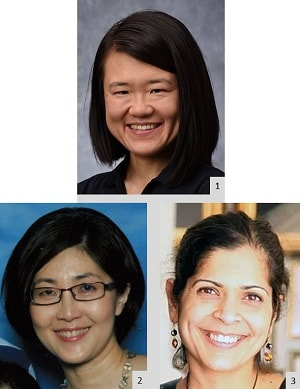|
What are the key ingredients for successfully developing large-scale cross-disciplinary research proposals? What’s required for a team to successfully work together at the proposal development stage? Here we provide seven lessons based on our experience, divided into:
Team characteristics Lesson 1: Invite a mix of new blood and established experience. It is useful to have team members at various stages of their careers, as well as researchers who have worked together previously and those who have never met before. It can work well to have clusters of researchers who have worked intensively within the cluster, but who are new to each other across clusters. Lesson 2: Foster convergence readiness. Prior experience in cross-disciplinary collaboration can enhance the dynamics of preparing a proposal by combining deep expertise in a discipline with the ability to see how the pieces fit together. Lesson 3: Encourage open questioning. One of the main difficulties with cross-disciplinary collaboration is the longer runway required for takeoff. It takes time to understand other disciplines and develop trusting relationships. This involves listening generously and asking a lot of questions. In addition, specialized disciplinary languages do not translate across all fields, so plain language is needed. To achieve such an environment, we recruit team members with confidence but without big egos. Confidence engenders the security needed to be vulnerable and ask questions, as well as to be comfortable in the unknown. On the other hand, big egos can result in repression of other team members’ perspectives. Structuring the grant proposal writing process Lesson 4: Use a mixture of ways to communicate and work together. Big group conversations are important for coherence, but small working groups are more effective at getting things done. Share the ideas generated in small groups with regular updates and survey questions. In addition, cross-pollinate with boundary-spanners across teams, who may be the leaders of the sub-teams, or individuals liaising across two or more sub-teams. Further, actively weave together thinking and writing. While it can be tempting (and easy) to spend a lot of time talking with each other, writing is a powerful way of communicating and brings much needed clarity to the thinking process. Lesson 5: Shift the academic culture. The collaboration-driven convergence culture stands in sharp contrast to traditional academic culture mired in competition and silos. Researchers need to recognize the interdependence between their success, their colleagues’ success, and the success of the overall research team. Women have an important role to play in shifting the academic culture and fostering collaboration, sharing, and connecting. Lesson 6: Allow plenty of time for team development. Teams need time to form, storm, norm, and finally perform. Take into account the fact that everyone has multiple obligations to juggle, as well as needing downtime at the end of the year and for vacations. Lesson 7: Plan for research implementation and broader impact. Key to research making a difference is long-term partnerships with those who are likely to use the research. For instance, research seeking to contribute to racial equity will only be effective if the researchers already have relevant long-term partnerships, for example with minority-serving institutions. Conclusion This blog post is based on our recent experience developing a proposal for the US National Science Foundation’s Sustainable Regional Systems-Research Networks solicitation. Our five-year $15 million project involved ten academic institutes, with a wide spectrum of disciplines, and 30 other stakeholder groups including state and city governments, non-governmental organizations, and industry partners. What have your experiences been with developing proposals for large-scale cross-disciplinary research projects? What lessons have you have learnt? What roses (strengths), buds (potential) and thorns (challenges) could you share with the community? - By Gemma Jiang, Jin Wen, and Simi Hoque This post was previously published on the Integration and Implementation Insights Blog Biography: Gemma Jiang PhD is the Founding Director of the Organizational Innovation Lab in the Swanson School of Engineering, as well as the founding host of the Pitt u.lab hub and the Adaptive Space at the University of Pittsburgh in the USA. She applies complexity leadership theory, social network analysis, and a suite of facilitation methods to enable transdisciplinary teams to converge upon solutions for challenges of societal importance. Biography: Jin Wen PhD is a Professor in the Department of Civil, Architectural, and Environmental Engineering at Drexel University in Philadelphia, USA. She has about twenty-years of experience in the sustainable building field and has taken several leadership roles in directing large scale collaborative research projects. Biography: Simi Hoque PhD is an associate professor in Architectural Engineering at Drexel University in Philadelphia, USA. Her expertise is in sustainable building design and computational modeling to characterize urban resilience. She is deeply invested in promoting women and girls in engineering.
0 Comments
|
AuthorsAll researchers in the Social Change Lab contribute to the "Do Good" blog. Click the author's name at the bottom of any post to learn more about their research or get in touch. Categories
All
Archive
July 2024
|
Social Change Lab
Join our mailing list!Click the button below to join our mailing list:
Social Change Lab supports crowdfunding of the research and support for the team! To donate to the lab, please click the button below! (Tax deductible receipts are provided via UQ’s secure donation website.) If you’d like to fund a specific project or student internship, you can also reach out directly!
|
LocationSocial Change Lab
School of Psychology McElwain Building The University of Queensland St Lucia, QLD 4072 Australia |
Check out our Privacy Policy
Copyright © 2017

 RSS Feed
RSS Feed
